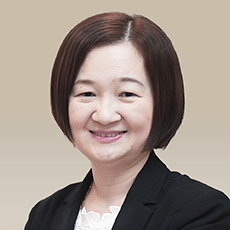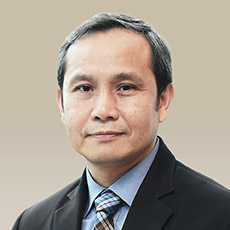Thai Stanley is a manufacturer of world-class automotive lighting based in Thailand. In late 2006, two core employees of Thai Stanley, Mr. Boriboon Samrejphol and Mr. Watchara Sathapornpiboon, realized that Thai Stanley’s legacy system needed to be improved, and that in order to succeed in an increasingly competitive world the company needed to introduce an ERP system. These two conveyed their concerns to the head office, and the company, along with its principle shareholder Stanley Electric, decided that it was time for Thai Stanley as well to introduce SAP. This is the story of a company taking the initiative to safeguard its future and provide better services to its customers. ABeam Consulting is proud to have been selected to support Thai Stanley in helping its employees make their dream for a coordinated approach to integrated business processes a reality.
Thai Stanley Electric Public Co., Ltd.
- Automotive
- Technology Transformation
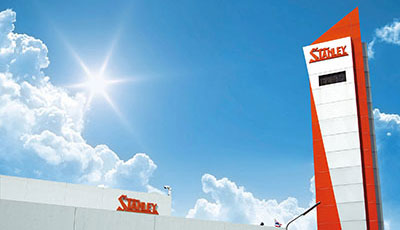
Challenge
- Thai Stanley needed an integrated and multifaceted global standard that could be used in local factories
- Data collection needed to be done in real-time, with greater accuracy and visibility, to help Stanley Electric get a better grasp on data for management purposes and realize its global strategy
- There was an overdependence on individual efforts, and disunity among various code types, leading to waste
- It was important that there be thorough, multilingual communication between all parties at each level of the information chain in Japan and Thailand throughout the SAP implementation process
ABeam Solution
- Promote complete standardization through the first international installation of SAP in the Stanley Electric Group
- Improve business processes and workflow to establish clear roles and responsibilities
- Work to facilitate knowledge transfers throughout Thai Stanley factories
- Establish Key Performance Indicators (KPI) to gauge waste and performance
- Construct a system for cost accounting
Success Factors
- The new ERP system was implemented in three phases: first within Accounting, then for Sales and Purchases, and finally for Production Management processes
- ABeam worked to ensure thorough communication, holding weekly meetings with all stakeholders to link tactical responses to issues and problems
- ABeam drew on their wealth of knowledge in the automotive parts industry and for SAP implementation to help Thai Stanley avoid foreseeable problems
- Commitment on the part of ABeam to matching the needs of Thai Stanley with effective solutions
- ABeam ensured that the SAP system implemented was reconciled with Thai Stanley’s corporate culture and the Stanley New Approach for higher Productivity (SNAP)
- ABeam carried out tests using data gathered from the field
Contents
- First international SAP implementation Coordinated with global standardization Striking a balance with local business practices
- The Thai Stanley approach to standardization
- A real partner for Thai Stanley
- A new day for Thai Stanley
- A world standard for Thailand, a Thai standard for the world
- Beyond Phase Three
- Voice – Customer Evaluation
First international SAP implementation Coordinated with global standardization Striking a balance with local business practices
“It was at the end of 2006 when they first approached me about implementing an ERP solution” began Mr. Hiroyuki Nakano, President of Thai Stanley. Pointing to Mr. Boriboon Samrejphol, Department Manager of the System Development Department, and Mr. Watchara Sathapornpiboon, Manager of the Office of Corporate Plan, he continued, “This project belongs to the local employees.”
Visit any workplace of Thai Stanley and you will notice something remarkable. You will see it in the actions and hear it in the words of every employee. It is a supreme sense of responsibility. The employees of the company feel total ownership of their jobs. It is this sense of responsibility that first led Mr. Boriboon and Mr. Watchara to propose the implementation of an ERP system at Thai Stanley.
“We knew we needed change,” said Mr. Boriboon. “The legacy system needed to be improved. We needed a more integrated system that could provide us with a centralized approach to data management. We needed greater transparency in all of our business practices.”
The decision to upgrade from Thai Stanley’s legacy system was not lightly made. All relevant players at each level of the information chain were included in the discussion every step of the way, from the workers in the factories to management.
“The Thai people recognized the need to implement better systems,” commented Mr. Nakano. “This process started in the workplaces and proceeded with the consent of employees. We in management recognize the importance of giving each workplace tools they can be happy with. They are the ones using the system, so they must be comfortable with it. They must feel they have ownership of any system we put in place.”
After months of real communication, it was decided that SAP was the best choice for Thai Stanley.
Mr. Hiroshi Taruki, Team Manager of the Integrated Systems Solution Department of Stanley Electric gave his impression when he first heard that Thai Stanley wanted to implement SAP: “We at Stanley Electric have already implemented SAP R/3 in Tokyo, and we recognize the need to begin rolling out coordinated standardization systems around the world. Of course, this was our first international implementation of SAP, so we had our doubts, but since there was such a strong call for this from Thailand we offered our full support. We also believed that in Thai Stanley there was a good opportunity to establish a model for ERP implementation overseas.”
The Thai Stanley approach to standardization
The people of Thai Stanley knew that the shift from their legacy system to SAP wouldn’t be easy. It would require a revolution in the way business was done. In order to make the transition easier, it was decided that the project would be split into three phases. In Phase One, SAP would be implemented for accounting processes. This would be followed by an implementation for sales/procurement processes in Phase Two and production/cost processes in Phase Three.
“We completed Phase One with a local provider,” said Mr. Nakano, looking back. “When it came time to implement Phase Two, we decided to consider what other companies were available. For Phase Two and Phase Three, since we were dealing with business processes that affect our customers, we knew it was absolutely important that implementation proceed smoothly. We needed a partner who could provide us with total support for any issues we faced, and who would stay with us in the long run. Finally, since we are a Thai company, we knew we needed a partner that could facilitate effective communication between all the involved parties in Thailand and Japan.”
For Phase Two and For Phase Two and Phase Three of the project, Thai Stanley decided to call for bids from many consulting agencies. Although the company received numerous proposals, for Thai Stanley, the clear choice was ABeam Consulting. Mr. Nakano explained why: “More than anything, it was important to us that we find a company that could offer total support, including after-service support. Cost-competitiveness was of course also a factor in our decision, but what we really wanted was a partner who could give us peace of mind about the operation of the new system after it was in place. Ultimately, we wanted a company who would be committed to this project. Beyond that, the Thai people trusted them. We knew that they could communicate effectively and work with our Thai employees. Finally, we were impressed by the extent of their knowledge not just in implementing ERP systems, but also with regard to our industry. They seemed capable of giving us advice tailored to our needs. That gave us peace of mind about the implementation process.”
Client passion; professional excellence; power of diversity; collaboration and collegiality; global perspective – the core values of ABeam Consulting. It was these core values that won over Thai Stanley and convinced them that they had found a real partner.
“I could really feel that the commitment was there on all levels” Once ABeam Consulting had been chosen as Thai Stanley’s real partner for Phase Two and Phase Three of the SAP implementation, ABeam consultants immediately got to work formulating phase-specific plans and a work statement.
Mr. Boriboon described his first impression of the team from ABeam Consulting during this time: “At the beginning, I wasn’t sure about working with them, I didn’t know if they could be trusted. But after I had the chance to spend more time with their consultants, I could really feel that the commitment was there on all levels. Some of our requirements were very detailed, or very particular to a Thai workplace, but no matter what, they always looked into our requests and replied back to us in good time. Sometimes the implementation process took longer than projected because of all our new requests, but since the ABeam people were so responsive I think in the end we have been given a very flexible system.”
For both Phase Two and Phase Three, the team from ABeam Consulting drew up detailed project timelines and plans to help Thai Stanley proceed smoothly from the Kickoff Date to the Go Live. The team made sure that at each project milestone the Steering Committee in Thai Stanley was well informed of the project’s status and had total control over its evolution. ABeam Shanghai Principal Takeshi Kawamura, total coordinator for the Thai Stanley project, flew back and forth between Japan and Thailand to make sure that Stanley Electric was included as well. In Thailand, ABeam Thailand Director of Integrated Enterprise Solutions Supreeda Jirawongsri made sure that the Thai Stanley side was fully empowered throughout the implementation.
“From the start, we knew communication would be the key to the success of this project,” said Ms. Supreeda. “And so we supported precise communication by sending constant reports to Stanley Electric and Thai Stanley, by working closely with the Thai workers in the each workplace and by facilitating each project Steering Committee meeting in both Thai and Japanese to ensure that everyone had a say in the project’s direction.” “Thai people are very soft spoken and do not usually state their opinions directly,” added Mr. Kawamura. “We worked hard to make sure that there was effective communication between all involved parties.”
For the employees of Thai Stanley, the ease with which they were able to communicate with the ABeam consultants came as a great relief. “We needed to make sure our new system was good for each workplace,” stressed Mr. Watchara. “But that doesn’t just mean the factories. In this company, work is carried out everywhere. Yes the factories are workplaces, but so is the President’s Office, accounting, every department. Each workplace has different requirements, and we needed to put in place a system that met everyone’s needs. The system needed to be optimized to ensure complete engagement in every location. We needed total communication, and we are pleased with what we got from ABeam.”
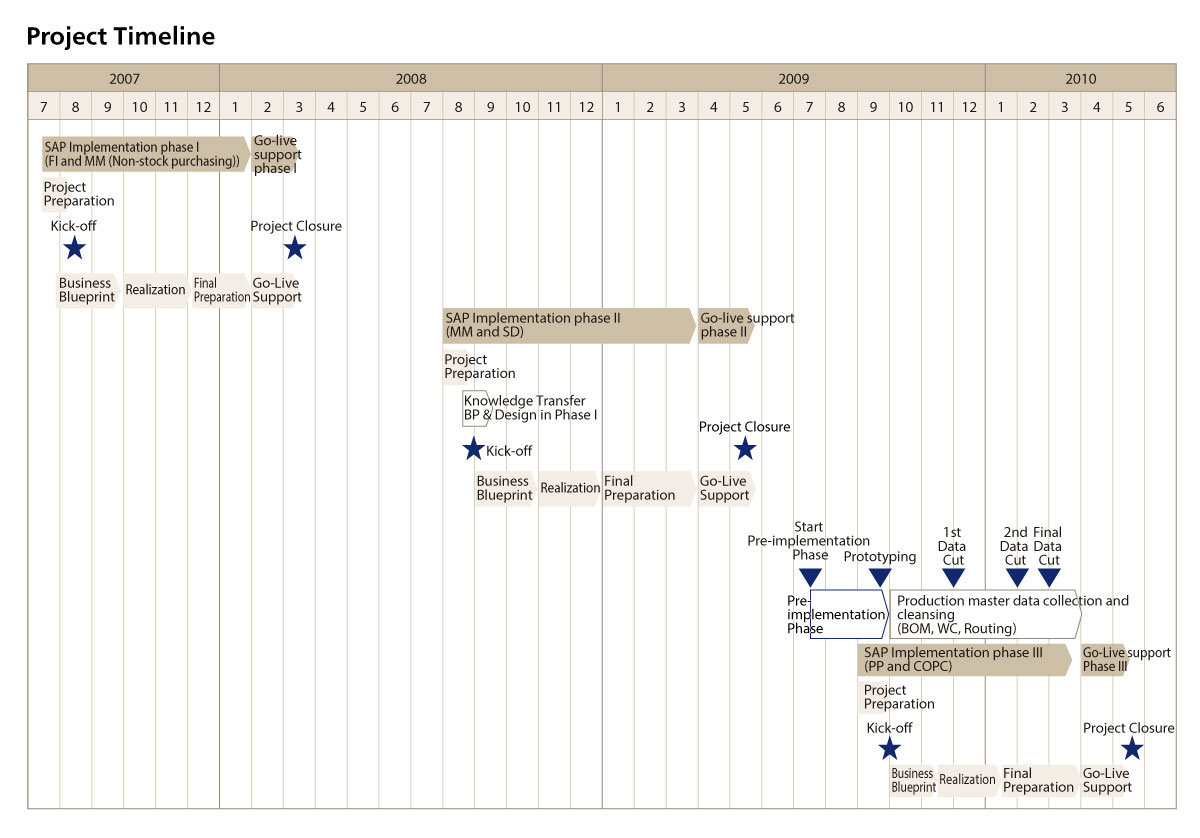

A real partner for Thai Stanley
As is so often the case when anything new is introduced in a company, the project Steering Committee in Thai Stanley and the team from ABeam Consulting came up against a lot of resistance.
“When we implemented SAP R/3 in Stanley Electric in Tokyo, there was also resistance. We in management understood the apprehension of the Thai people well, but we wanted to see this project succeed,” explained Mr. Nakano.
Mr. Boriboon reported that in the beginning, he also felt uneasy about some of the changes recommended by ABeam Consulting, and was unsure if the company had been the right choice. “I was not certain at first, but over time we began to see results. The consultants from ABeam showed real commitment. They dealt with our issues. They always saw everything through to the end.”
“We believed it was vital that our work for this project be based on an understanding of Thai culture and the way things are done in Thailand,” said Ms. Supreeda, explaining the ABeam approach. “Each ABeam member was well aware of the differences in the implementation process between an implementation in Thailand and one in Japan. We communicated a lot with the people in each workplace to make sure the process could proceed forward smoothly. Through real communication we gradually gained the understanding of each Thai Stanley employee about the new system and workflow improvements.” ABeam Thailand Integrated Enterprise Solutions Department Manager Montree Tuntithavorn added, “The goal for this project was not just to implement SAP for management but to introduce KPIs that could dramatically improve efficiency for every employee. In order to achieve this goal, we knew that we needed to foster an understanding of the importance of the project among the users while working within a budget and timeframe that the management could accept. Communication and collaboration with all parties was crucial to the success of this project.”
It wasn’t just persistent communication that helped ABeam Consulting win over Thai Stanley employees. It was also the constant efforts of ABeam Consulting to understand the core values of Thai Stanley and incorporate these values in the new ERP system. The people of Thai Stanley are all dedicated to the Stanley New Approach for higher Productivity (SNAP), a multifaceted approach to eliminating waste and maximizing output.
“For us, ERP systems are just tools. SNAP is our culture, our bible,” explained Mr. Taruki. It became clear early on in the project that the new SAP system would not succeed in Thai Stanley unless it was tailored for full integration with SNAP. The team from ABeam Consulting took this issue seriously.
“Our objective from the start was to implement a new ERP system based on SNAP,” said Mr. Boriboon. “When ABeam discussed the software solutions available to us, they always explained how each solution would be compatible with SNAP. They focused on the business processes rather than on just the software. This meant a lot to all of us.” Mr. Kawamura explained, “The SAP Global Template wasn’t necessarily designed to work absolutely everywhere. We made sure to move forward with the rollout while integrating any special requests from Thai Stanley.”
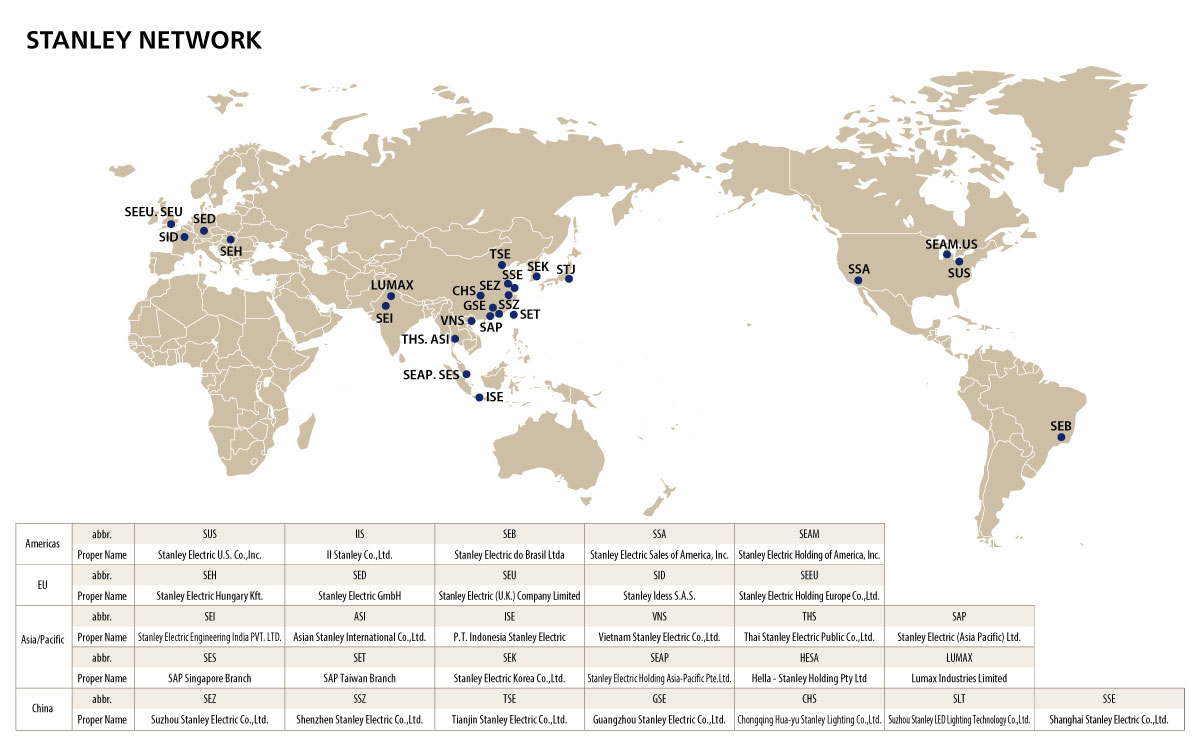
A new day for Thai Stanley
With the closing of Phase Three, the SAP applications have now been integrated into SNAP and fully implemented throughout Thai Stanley. The company is beginning to see measurable results. “Now that we have an integrated system in place and since Case Study SAP® ERP Solution people are starting to use it to enter data in real-time,” commented Mr. Watchara. “We are no longer forced to key in data over and over again. All of our processes have been centralized online, increasing transparency and allowing us to track projects and orders better. The efficiencies we have achieved thanks to the SAP applications have allowed us to save on labor costs and processing times.”
In the end, for Thai Stanley, success is all about customer satisfaction. This is yet another point of shared values between Thai Stanley and ABeam Consulting. Mr. Nakano offered his thoughts on the results of the project: “As a parts manufacturer, our focus is always on our relationship with our customers. We want to ensure the smooth supply of parts, stable quality, and low costs. If our customers don’t feel these effects because of the implementation of this system, there has been no point. But I have a feeling that people are beginning to use the system more and more and that our customers as well will see positive results.”
From Stanley Electric, Mr. Taruki added his opinion: “From my perspective, I believe that ABeam did a thorough job on this. It was clear that they managed communications well and were committed to a successful outcome. They delivered on their promises, and they didn’t do anything we didn’t want. In Japan, it is common for solution providers to try and bundle in extra services the customer doesn’t really want because the salesperson thinks it will make the customer happy. But the work statement we received from ABeam had a clearly defined range of implementation, and they stuck to it. There was excellent transparency throughout the whole process.”
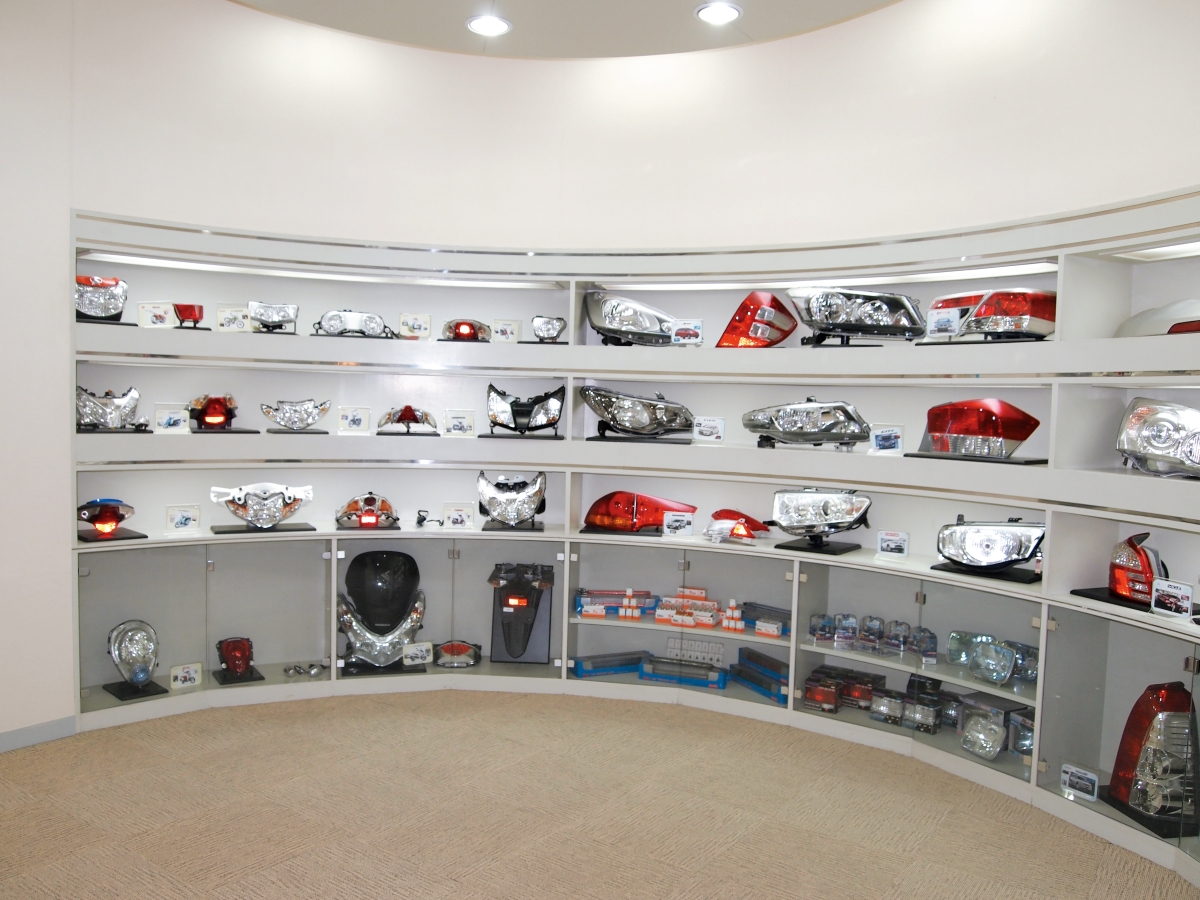
A world standard for Thailand, a Thai standard for the world
The implantation of SAP behind them, what’s next for Thai Stanley, Stanley Electric and ABeam Consulting?
“The success from Thailand will serve as a reference for other implementations, as will our experience with ABeam in implementing SAP R/3 in Japan,” explained Mr. Taruki. “We look forward to proactive proposals from ABeam about the challenges we face in the 21 countries we operate in around the world. We have divided each of our partner companies into rankings. We intend to implement SAP R/3 or an equivalent system in the most advanced territories. The next rank territories will get an equivalent to SAP Business One. For the smallest companies we will probably just pursue workplace development measures and basic workflow improvements. We look forward to appropriate proposals from ABeam for each location.”
Mr. Nakano at Thai Stanley is also looking forward to the future. Stressing the positive outcome the project has had not just for Thai Stanley but for the Stanley Group as a whole, he exclaimed, “Proof that this project has been a success will come when people from Thai Stanley are working with those in other Stanley Group companies across the globe to help them implement standardization systems. I look forward to that day. That is our goal now.” It is a goal which ABeam Consulting will certainly help Thai Stanley achieve.
Beyond Phase Three
It took five years, but commitment and communication among all stakeholders along with the support of ABeam Consulting as a real partner that understands Thai Stanley’s core values has turned what was once the dream of a few important Thai Stanley employees into a new ERP system fully integrated with existing business practices for greater efficiency.
ABeam Consulting’s dedication to the needs of Thai Stanley and understanding of Thai Stanley’s unique corporate culture helped it find solutions for its partner that effectively eliminated waste.
Things are changing at Thai Stanley. The project is not yet a complete success. There is still work to be done. But no matter what problems Thai Stanley faces in the future, they know they can turn to their real partners at ABeam Consulting for support.
Voice – Customer Evaluation
“The complete implementation of time management and proper work processes required us to go so far as to change the mindsets of individual employees. We couldn’t think outside the box of our conventional training methods within the company and had run up against a wall, but it was at that point that the professionals at ABeam provided us with a solution. Their wealth of experience was particularly helpful to us in revolutionizing the way out employees thought. I hope that we can rely on them for periodic follow-up work in the future as well.”
President of Thai Stanley Electric Public Company Limited
Mr. Hiroyuki Nakano,
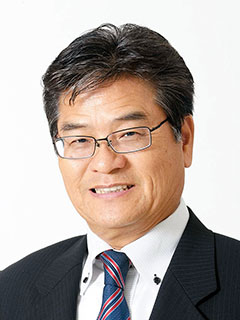
“ABeam completed this job exactly as promised. They were professional and efficient.”
Team Manager of Integrated System Solution Department,
Corporate Management Center,
Stanley Electric Co., Ltd.
Mr. Hiroshi Taruki,
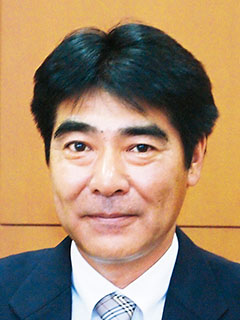
“The ABeam consultants established relationships of trust as real partners through their dealings with everyone in each workplace. I felt that they were committed to this project on all levels, and was impressed with the way they flexibly responded to the unique conditions of Thailand.”
Department Manager of System Development Department,
Thai Stanley Electric Public Company Limited
Mr. Boriboon Samrejphol,
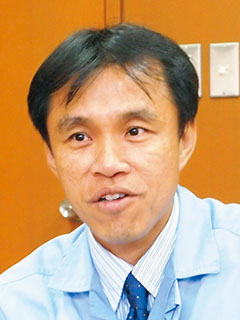
“Whenever we ran up against any problems, the team from ABeam helped us to investigate the cause of the problems and solve them. I am extremely pleased with the end results of this project.”
Manager of Office of Corporate Plan,
Thai Stanley Electric Public Company Limited
Mr. Watchara Sathapornpiboon,
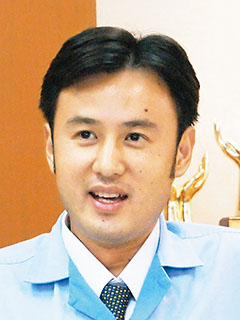
Customer Profile
- Company name
- Thai Stanley Electric Public Co., Ltd. (HQ:Stanley Electric Co.,Ltd.)
- Location
- 29/3 Moo1, Bangpoon-Rangsit Rd., Banklang, A.Muang, Pathumthanee 12000,
- HQ
- 2-9-13, Nakameguro Meguroku Tokyo, 153-8636, Japan
- Estd.
- May 1980
- Business
- Manufacturing & sales of auto bulb, lighting equipment, plastic injection mold, etc.
- Total sales
- 7286.37 mil. THB (FY 2010) JPY 238,888,000,000 (FY2010, consolidated)
- Employees
- 2675 (as of 1 September 2010)(worldwide 12,898, as of 31 March 2010)

Click here for inquiries and consultations

